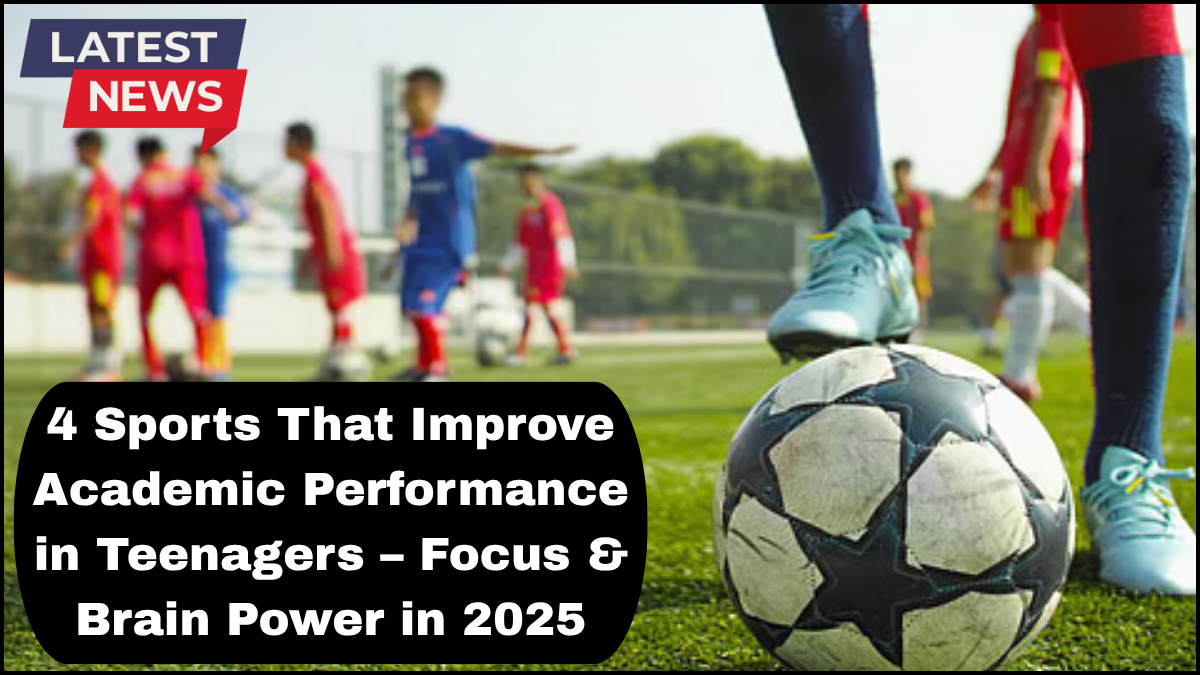In 2025, with the pressures of digital distractions, academic competitiveness, and rising mental health concerns, parents and educators are searching for effective ways to enhance students’ learning potential. One underrated solution? Sports. Not just for physical fitness, certain sports directly contribute to academic improvement in teenagers by enhancing brain function, improving concentration, and cultivating focus and discipline. Below are four of the most impactful sports for academic performance.

1. Martial Arts – Precision, Patience, and Mental Clarity
Martial arts like Taekwondo, Karate, and Judo aren’t just about self-defense. They train the mind as much as the body. Through controlled movements, repetition, and structured discipline, students learn to focus their attention sharply—a skill directly transferable to the classroom.
In 2025, many schools have started integrating martial arts into their PE programs because of its measurable impact on cognitive development and emotional regulation. A teenager who trains in martial arts is constantly practicing delayed gratification, stress control, and task-oriented concentration—all essential for academic improvement.
2. Swimming – Rhythm, Memory, and Mental Endurance
Swimming is one of the most brain-boosting sports out there. The rhythmic and repetitive nature of swimming laps helps stimulate both hemispheres of the brain. It promotes neurogenesis (the growth of new brain cells), which is directly linked to improved memory and cognitive function.
Additionally, swimmers often train early in the morning—a routine that builds focus and discipline. Waking up at 5 AM for training teaches time management and goal-setting, reinforcing a routine that supports academic success. Research in 2025 shows that teenagers who swim regularly score higher in problem-solving and language processing tests.
3. Tennis – Fast Thinking and Strategy Development
Tennis challenges the brain in unique ways. It requires players to anticipate opponents’ moves, adapt strategies in real time, and maintain sharp reflexes. All of these tasks stimulate the prefrontal cortex—the area responsible for executive functioning, planning, and short-term memory.
For teenagers, regularly playing tennis sharpens decision-making skills under pressure—just like answering timed questions during exams. It also builds hand-eye coordination and trains the brain to switch tasks quickly, a trait beneficial for multitasking during school assignments.
In 2025, many youth development programs advocate tennis not just as a sport, but as a cognitive exercise that supports long-term academic improvement.
4. Cross-Country Running – Mental Toughness and Stress Reduction
While often seen as a solo sport, cross-country running builds inner resilience and emotional regulation. Long-distance running increases the brain’s serotonin levels, which helps regulate mood, sleep, and memory—critical factors in a teenager’s academic journey.
Running also promotes mindfulness. During a long run, teens learn to manage mental fatigue and control negative self-talk. These skills are essential when tackling difficult subjects or preparing for exams.
In 2025, cross-country programs are being recognized not just for promoting fitness, but for their role in building self-reliance and focus in academic environments. Schools with cross-country teams often report lower dropout rates and higher student engagement levels.
Why Sports Help Academic Performance
Sports aren’t just physical outlets. They are frameworks for cognitive growth, structure, and emotional balance. Engaging in the right sport improves:
- Brain plasticity and memory retention
- Time management and goal setting
- Stress management
- Self-discipline and routine building
Each of the four sports mentioned above fosters a different area of brain development and contributes uniquely to academic success.
FAQ: Sports & Academic Improvement in 2025
Q1: Which sport is best for improving focus in teenagers?
A: Martial arts stand out for developing laser-sharp focus and mental clarity through structured training.
Q2: How often should teens participate in sports for cognitive benefits?
A: At least 3–4 sessions per week of 45–60 minutes are ideal for noticeable academic and mental improvements.
Q3: Can sports actually help students get better grades?
A: Yes. Regular participation in cognitively engaging sports has been linked with improved memory, better test scores, and enhanced classroom performance.
Q4: Are team sports or individual sports better for academic success?
A: Both have unique benefits. Team sports improve communication and collaboration; individual sports like swimming or running build self-motivation and discipline.
click here to learn more
